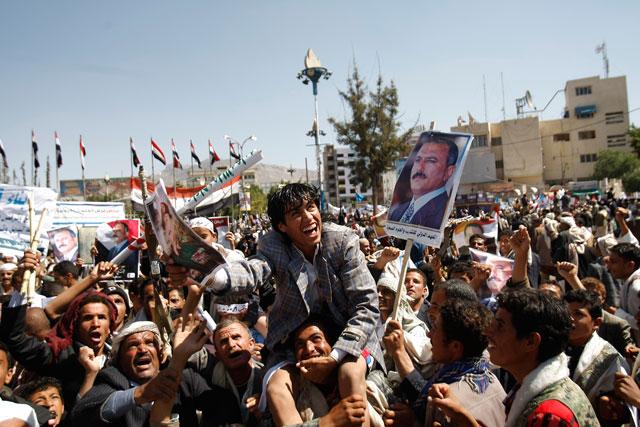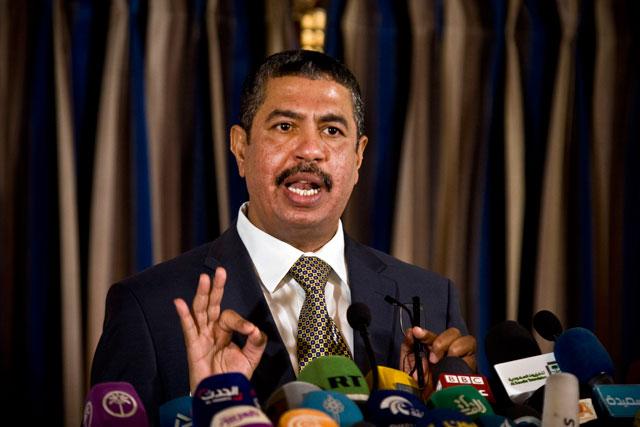You are here
Yemen ruling party and rebels decry new government
By AP - Nov 08,2014 - Last updated at Nov 08,2014

SANAA — Yemen's ruling party, led by former leader Ali Abdullah Saleh, and allied Shiite rebels rejected Saturday a newly formed government threatening a UN-brokered deal that established a truce after the rebels overran the capital.
The declaration by Saleh's General People's Congress Party and the rebel group known as Houthis come a day after the UN Security Council imposed sanctions on Saleh and two rebel leaders for threatening the peace, security and stability of the country. The council ordered a freeze of all assets and a global travel ban on Saleh, the rebel group's military commander, Abd Al Khaliq Al Houthi, and the Houthi's second-in-command, Abdullah Yahya Al Hakim.
The Houthis said in a statement that the sanctions were an obstacle to the political transition of Yemen. The sanctions were "a flagrant provocation of the feelings of Yemenis and a blatant interference in their internal affairs", the group said.
In the same statement the rebel group dismissed the new government as unrepresentative and called for a new line up.
The Houthi rebels captured Sanaa in September, allegedly with the tacit support of Saleh, and demanded that current President Abed Rabbo Mansour Hadi appoint a new government, complaining the previous one was too close to their rival conservative Sunni Islamist party.
After weeks of violence and political wrangling, during which a UN-brokered deal was reached, Khaled Bahah was nominated for prime minister and tasked with forming a new government. But a dispute over who would form the Cabinet continued until last Saturday, when all Yemeni parties and political groups agreed on an apolitical technocrat Cabinet. A lineup of 37 members, including Bahah, was announced Friday. Only seven ministers were left over from the previous government.
The new showdown started earlier Saturday and appeared to be in direct response to the UN sanctions passed Friday soon after the new government was announced. Saleh's supporters in the ruling party decided earlier Saturday to sack Hadi from its leadership, replacing him and another senior aide with new members.
The party is split between supporters of Hadi and those backing Saleh, who was forced to step down in 2012 following protests against him. Saleh remains a major power broker however. In the US-backed, Gulf-brokered deal in which Saleh agreed to step down in favour of Hadi, he was granted immunity from prosecution. Hadi was a senior aide of Saleh but has since assuming office accused his predecessor of undermining him.
In a televised speech to the party, which he still heads, Saleh blamed Hadi for allegedly lobbying for the sanctions against him since he stepped down. He denied any wrongdoing, vowing to drop the immunity he was granted if authorities had enough evidence to prosecute him.
Saleh then criticised the newly formed government, saying it was "unrepresentative". The ruling party then announced it was pulling its members from the new Cabinet, which include at least three ministers.
"We will not take part in a government weaker than its predecessor," Saleh said.
Related Articles
Yemen's new Cabinet was sworn in on Sunday despite calls by former autocratic president Ali Abdullah Saleh and Shiite militias allied to him for it to be boycotted.
Yemeni President Abed Rabbo Mansour Hadi has appointed top security officials known for their close ties to Shiite militiamen who have overrun the capital and to former strongman Ali Abdullah Saleh.
Officers suspected to be loyalists of ousted president Ali Abdullah Saleh are leading a mutiny inside the headquarters of an elite paramilitary unit, seeking to oust their commander on Thursday, officials said.













